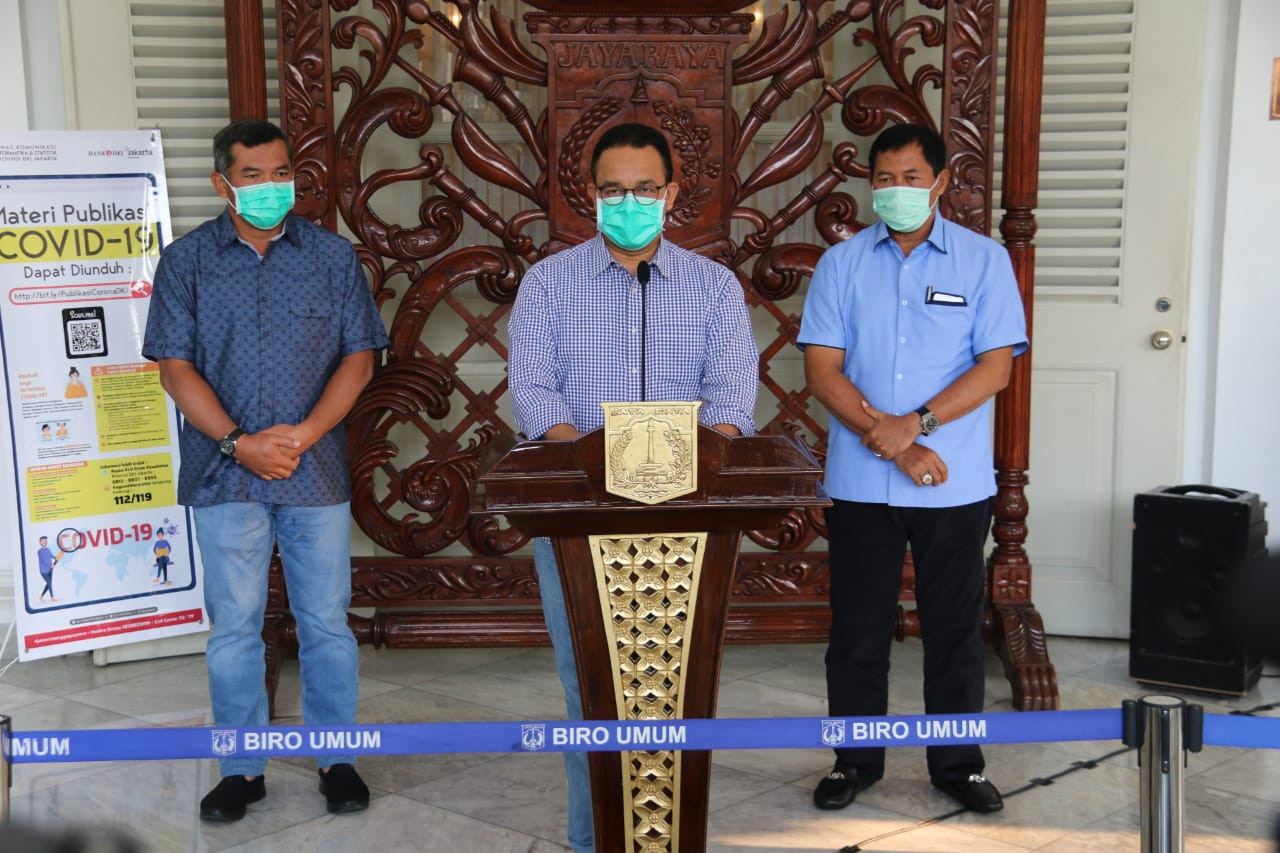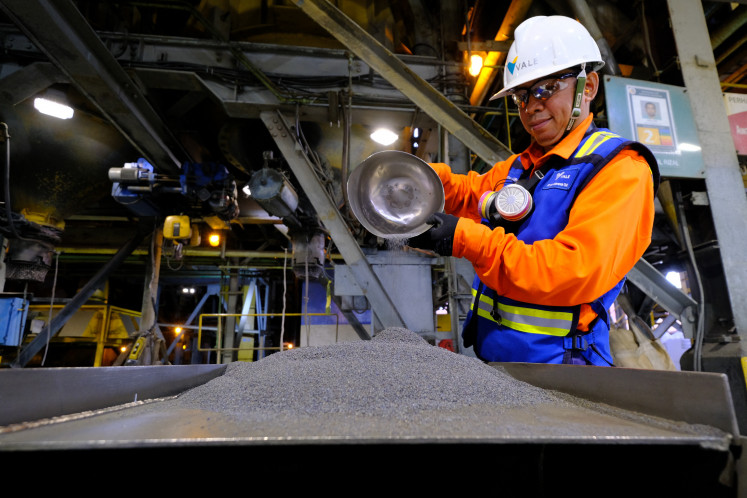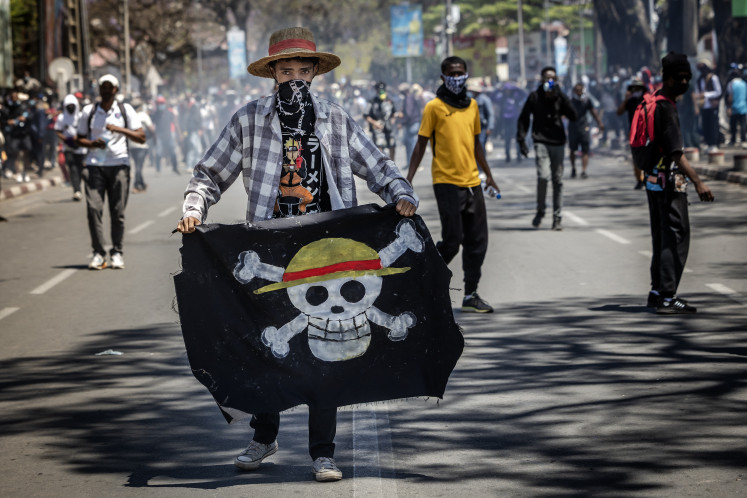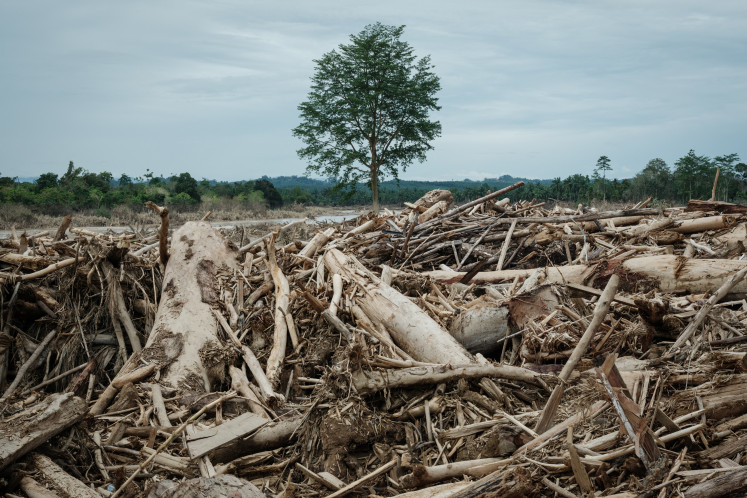Popular Reads
Top Results
Can't find what you're looking for?
View all search resultsPopular Reads
Top Results
Can't find what you're looking for?
View all search resultsCOVID-19 leadership test
The COVID-19 pandemic, with its immediate health impacts and long-term economic fallout, is among the greatest crises the world has ever dealt with. It is the test by which political leadership will be judged for years to come.
Change text size
Gift Premium Articles
to Anyone
 Jakarta Governor Anies Baswedan (center), accompanied by Jakarta Police chief Insp. Gen. Nana Sudjana (left) and Kodam Jaya military commander Maj. Gen. Eko Margiyono, announces the extension of the COVID-19 state of emergency during a press briefing at City Hall on March 28. (Courtesy of/Jakarta provincial adminsitration)
Jakarta Governor Anies Baswedan (center), accompanied by Jakarta Police chief Insp. Gen. Nana Sudjana (left) and Kodam Jaya military commander Maj. Gen. Eko Margiyono, announces the extension of the COVID-19 state of emergency during a press briefing at City Hall on March 28. (Courtesy of/Jakarta provincial adminsitration)
C
rises have a way of rewarding political leadership. In 2001, then-United States president George W. Bush was on a course of mediocrity, with his approval ratings hovering near 60 percent. His resolute response to the 9/11 terrorist attacks then elevated him to widespread national support, with an approval rating of 92 percent.
When Australian Prime Minister Scott Morrison fumbled in addressing the nation’s massive bushfires in 2019 and vacationed in Hawaii while blazes destroyed homes and neighborhoods, his popularity suffered.
The COVID-19 pandemic, with its immediate health impacts and long-term economic fallout, is among the greatest crises the world has ever dealt with. It is the test by which political leadership will be judged for years to come.
As the central government continues to dither over its COVID-19 decisions, the public has begun to look for guidance from local leaders, and most of the time, that local leadership has delivered. While the central government vacillated over whether to impose physical distancing rules, governors, regents and mayors seized the initiative to protect their own citizens.
In Jakarta, Governor Anies Baswedan engaged in a tugof-war with the central government over who should decide upon and enforce physical distancing measures. After Anies aired his grievances through national media, the central government bowed to pressure and approved his demand for physical distancing rules in the capital.
In Central Java, Governor Ganjar Pranowo has won praise for his hands-on approach to the health and economic fallout of the COVID-19 crisis. In addition to actively campaigning for physical distancing, Ganjar has pledged to set aside a significant amount of funds to pay for medical treatment and uphold the social safety net.
In East Java, Governor Khofifah Indar Parawansa had a public spat with Surabaya Mayor Tri Rismaharani over the handling of the outbreak. This feud may look unflattering, but it also indicates that both political leaders are deeply serious about dealing with COVID-19.
These political leaders, of course, were not motivated by pure civic altruism. Long-term political goals are certainly on their minds. After all, President Joko “Jokowi” Widodo will not be eligible to seek reelection in 2024, and local leaders such as Anies, Ganjar, West Java Governor Ridwan Kamil and Khofifah could be the strongest contenders for the presidency. In contrast, being a Cabinet minister has turned out to be an impediment for Gerindra Party chairman Prabowo Subianto, who is expected to run in 2024. Based on a poll by Indikator Politik Indonesia, only 14 percent of voters would vote for Prabowo if the election were held today, down more than 8 percentage points from the February data.
As the pollster’s executive director, Burhanuddin Muhtadi, said, the management of COVID-19 response measures at the regional level had created a political stage for the regional leaders to boost their popularity rate ahead of the 2024 race.
We certainly hope that this batch of younger, regional leaders will appear on the ballot in 2024, and when the time comes to cast our votes, we should remember what each candidate achieved in the fight against the COVID-19 pandemic.









